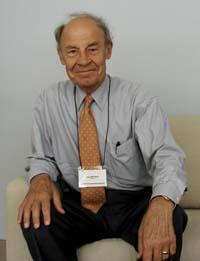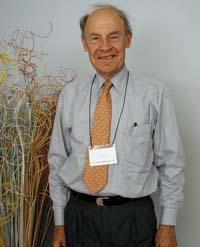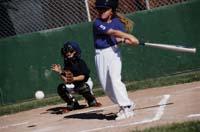Dudley Herschbach: "Teaching science in itself is not hard, it is hard to do it really well"

The passion for science aroused me when I was about 10 or 11 years old. I took the National Geographic magazine which was at my grandmother's house and started reading an article with beautiful star maps. I liked it a lot and since then I started making star maps on my own. But I never imagined myself an astronomer. All this served me especially to realize that I liked to read scientific topics.
At school I also liked very much the subjects of Mathematics and Chemistry. In addition, I had very good teachers. For example, the mathematician Pólya* was a brilliant professor. I will never forget it. But I also liked Physical Chemistry, the branch of Chemistry in which Physics appears. So what to learn? Mathematics, Physics, Chemistry...
In the end I decided to study Mathematics first, because I had unique professors, yes, without neglecting Physics and Chemistry.
We analyze, among other things, the speed with which chemical reactions occur. That is, how the molecules react. In fact, it is often no easy task to investigate what is happening at the molecular level. If both molecules collide, no one knows what their direction will be. So, first of all, we conducted a series of experiments to check that the molecules took a certain direction, how they reacted, etc. In general, we wanted to go beyond the basis of chemical reactions to better understand Chemistry.
Let's make a small comparison: imagine a group of thousands of people. You are listening to the voice of all of them and only the male is heard. And by analyzing that same thing, you must analyze the nature of each person. Complicated work, right? Something similar occurs in the case of Chemistry. From the collision between thousands and thousands of molecules, the behavior of each of them should be analyzed.

Indeed. People of very different levels, with a great interest for the subject and who did not have... It is curious to see everyone grouped in a great class.
I love it. And it is that everyone has to make a special effort so that the subject he teaches is of his liking. That is, we must teach students that Chemistry is really interesting and pleasant. In addition, when teaching General Chemistry all fields of Chemistry are worked.
To do this, we must seek and think ways. Many times I put the example of the sport so popular in the United States, baseball. I ask you when do you think the ball reaches higher speed on a wet summer day or any other day? We could say that on wet days, as it were, we act more slowly, or it seems. In the case of the ball, however, the opposite occurs.
As is known, air is mainly formed by oxygen and nitrogen. On wet days, however, some oxygen and nitrogen molecules of the air are replaced by water molecules, which are less heavy than those of oxygen. Consequently, the air is less dense and the ball makes it easier to travel, that is, on wet days the ball goes further, although people in general think otherwise. If not, try.
Surprisingly, often many expert professors in the subject give an incorrect answer to this question.
Among other things, I give numerous lectures for all types of public, I have written several articles and participated in the science fair organized by secondary school students. Besides that, I have my hole in the TV. In fact, in a program I work with young people discussing science. After all, I speak of science with them, playing.

I love that work. The work itself is not hard, it is hard to do it really well. And it is that, in general, mathematics, physics or chemistry are not subjects that please students. For example, math exercises often have a single answer. Therefore, students should find this answer. If the response is not found immediately, students do not feel comfortable and try to avoid the topic as scared. I have spoken many times with students on this topic.
However, science often does not know the correct question or answer. Therefore, you have to look for the right answer and relax. Many times you don't get the answer you expect, but you always learn. That is why I try to show students that science is like poetry, like writing a poem. Open your eyes and take new paths. That is what is done in science. In short, science has to do with what we do not know.
I investigate the molecular transformations due to high pressure and the theoretical analysis of the molecular motors, especially in the dna-enzyme systems, to analyze, among other things, the effect of orientation on the shock of the molecules.
At present I also teach a course on molecular motors for beginners, and on more than one occasion I have spoken about brownian movement. In September, at the congress Albert Einstein Annus Mirabilis 2005, organized by the Donostia International Physics Center Foundation (DIPC), I spoke about Brownian movement and molecular engines. The different topics are very different, but the molecular engines, especially the enzymes, are facing the brownian movement.
*George Pólya, 1887-1885. Mathematician, rich researcher and excellent professor. His study on problem solving in the book How to solve it opened up a new era.

Buletina
Bidali zure helbide elektronikoa eta jaso asteroko buletina zure sarrera-ontzian











